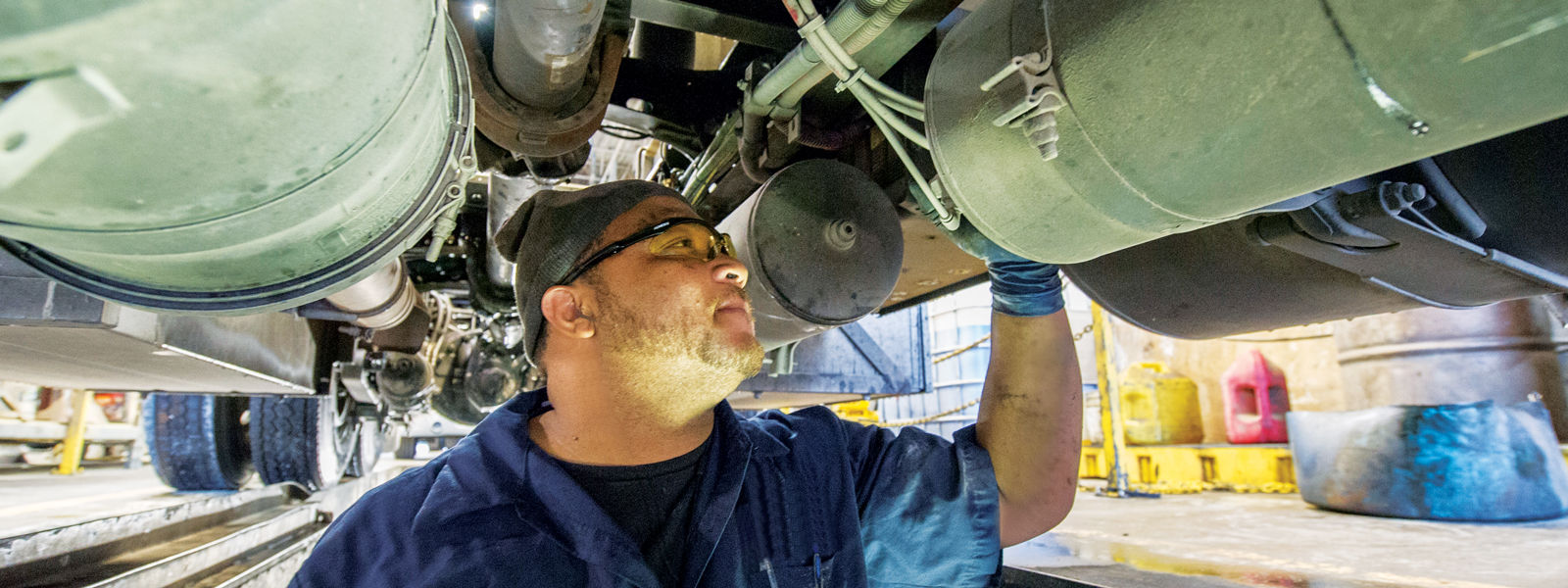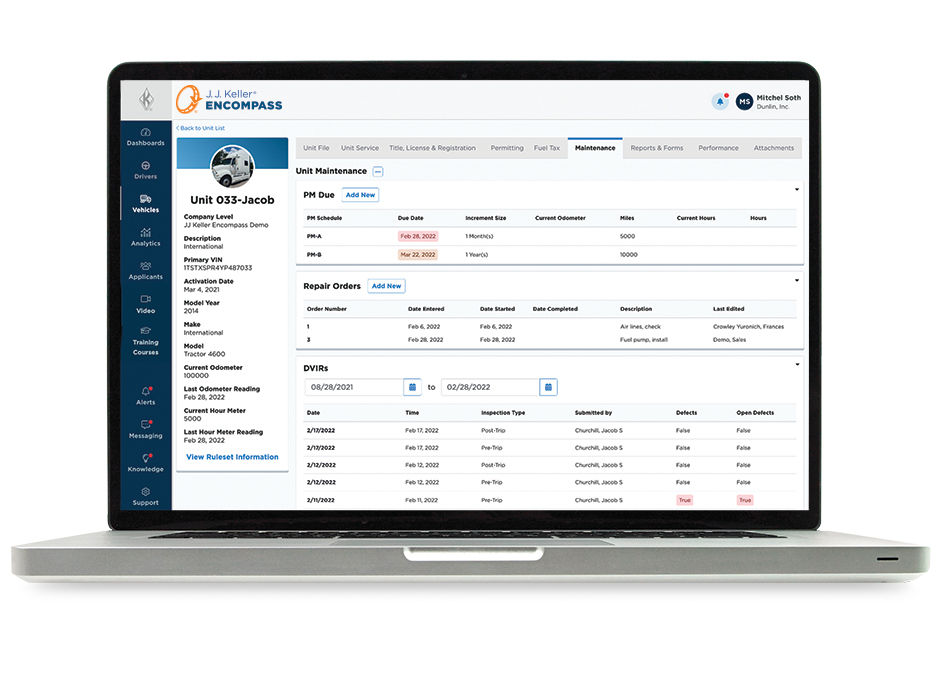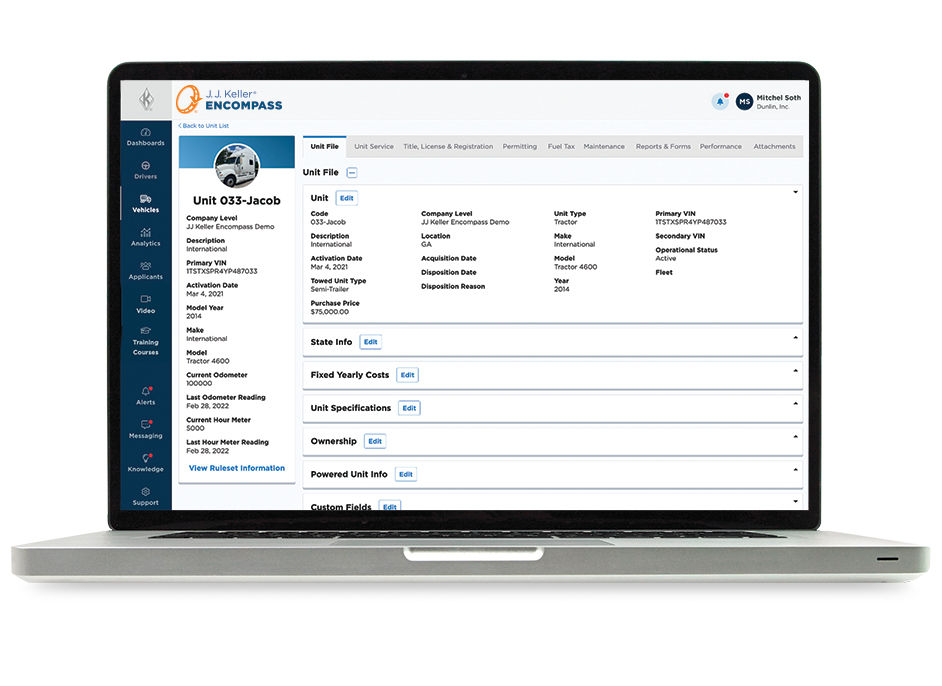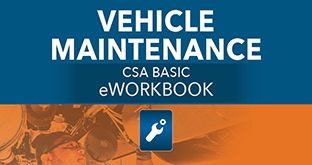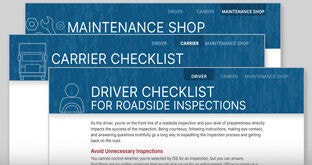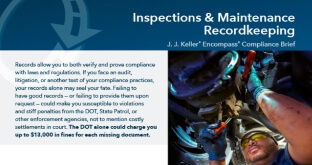Pretrip – A full and complete inspection of the vehicle. The driver is not to operate the vehicle and must contact maintenance immediately if any defects are discovered during the pretrip. The driver is also to determine if there are any outstanding DVIRs for the vehicle. If there are, the driver is to verify that any necessary repairs have been completed and sign the DVIR.
Enroute – An inspection of the cargo securement devices after the first 50 miles, every three hours, 150 miles, or the next duty change, whichever comes first. If the driver is transporting hazardous materials, the driver is to check the tires at the beginning of the trip, each time the vehicle is parked, and at the end of the trip. If any defects are identified, the driver is to immediately contact maintenance.
Post-trip – A full and complete inspection of the vehicle, with the exception of components that are affected by heat and/or operation (such as fluids, at-the-wheel brake components, exhaust components, etc.). If any defects are discovered, or the driver is aware of any pre-existing defects, the driver is to immediately submit a DVIR. If the driver is the next driver to operate the vehicle, the driver is to verify that any necessary repairs were completed before operating the vehicle.
